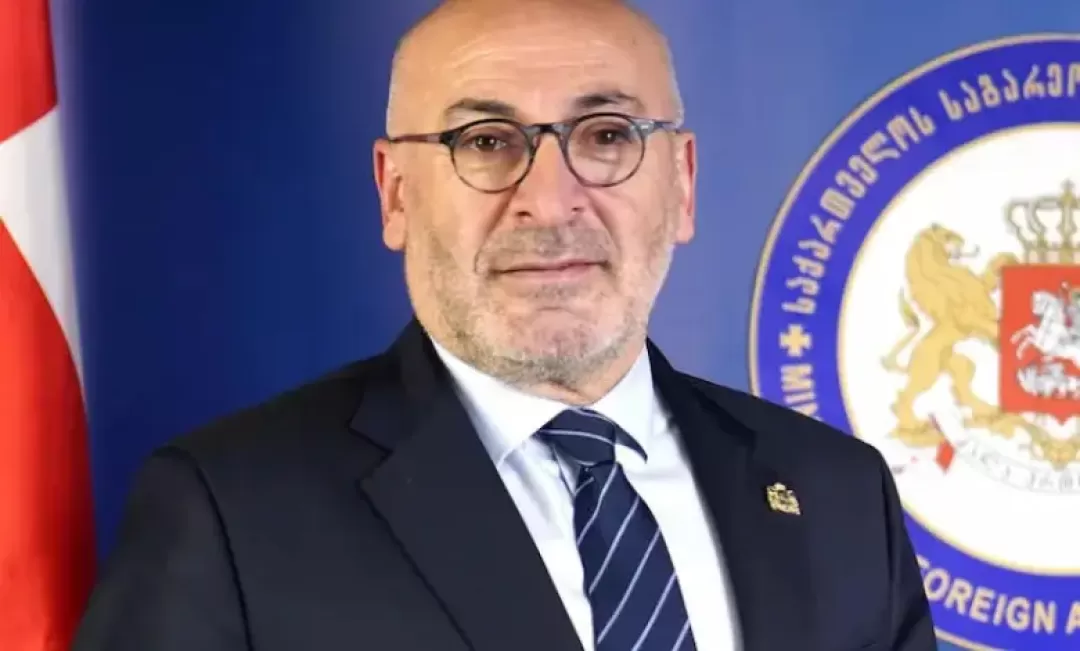
Georgian Ambassador to France Resigns in Protest Against Foreign Agents Law

On May 9, Gotcha Javakhishvili, the Ambassador Extraordinary and Plenipotentiary of Georgia to the French Republic and the Principality of Monaco, announced his resignation in response to the reintroduction of the Foreign Agents Law, which he said has significantly complicated the dynamics between Georgia and its allies.
On Facebook, Javakhishvili wrote, "The climate fostered by the reintroduction of this law has made my role extremely challenging." Javakhishvili noted his disillusionment with the current political strategy, stating, "Although no one in my immediate circle in the government or among the diplomats openly supports Russia, I perceive that this may be a strategic move to achieve a certain goal. However, I no longer see my contributions in this context: aspiring to Europe while at the same time defending against it". He went on to explain his decision, emphasizing his desire to express his opinion freely without political repercussions: "It is crucial for me that my sincere views are not seen as a political maneuver for anyone's gain or loss. After much deliberation, I've decided to rid myself of this burden, which I find unbearable. Even if my decision turns out to be wrong, I will live without regrets, guided only by my conscience". Reaffirming his commitment to Georgia's European course, Javakhishvili said, "I am convinced that Georgia is firmly rooted in its national values and understands the cost of freedom and independence. Given our extensive adversities with Russia, Georgian soil will never again nourish Russian influence.
On May 10, Foreign Minister Ilia Darchiashvili and Culture Minister Tea Tsulukiani responded to Javakhishvili's resignation. Both officials criticized the ambassador's remarks as insulting.
Darchiashvili argued that Javakhishvili, having represented Georgia in a key European nation, should be well aware of the government's efforts to secure a place in the European Union, asserting, "Georgia will indeed become a respected, full member of the EU, but the former ambassador has forfeited his role in this journey by his own choice."
Tsulukiani adopted a harsher tone, accusing Javakhishvili of engaging in what she called "primitive Europeanism" and seeking recognition as a hero. She criticized those who share Javakhishvili's perspective, saying, "It fascinates me that they see themselves as the epitome of Europeanness, as if they are Europe itself or carry its future. Moreover, they have been living in Europe for so long - at the expense of the Georgian government and its people - that they now believe that European values are an integral part of their being. Tsulukiani concluded, "Georgia faces multiple threats from all directions. Living in a harmful illusion, some suggest that the state should ignore certain threats... This is not the path we have chosen. Ours is more arduous, apparently too arduous for some".
Interview with Le Monde
In an interview with the French newspaper Le Monde, Gotcha Javakhishvili called for the repeal of the controversial Foreign Agents Law.
Describing his resignation as a stand for "honor," Javakhishvili expressed his inability to promote Georgia's European aspirations because of the law's reintroduction. He further implied that his resignation might inspire other diplomats to consider similar actions.
The former ambassador announced that he had submitted his resignation to the Ministry of Foreign Affairs on April 17, following the preliminary approval of the bill.
Commenting on the possibility of other diplomats resigning, Javakhishvili said that although he had not discussed his resignation with his colleagues, he believed that many shared his pro-European views. He did not intend for his resignation to set a precedent, but acknowledged the potential influence of his decision, adding, "Everyone will make [a decision to resign] according to their conscience."
Javakhishvili also questioned the motives behind the Georgian Dream Party's decision to reintroduce the law, which mirrors Russian legislation, especially in light of the upcoming parliamentary elections in October against a divided opposition. He found the decision puzzling, given Georgia's EU aspirations.
"Today, our European friends criticize us and Moscow praises us. I find this situation intolerable," he said. He clarified his view of the Georgian government's stance toward Russia, suggesting that it was not overtly pro-Russian, but strategically cautious, aimed at preserving peace and stabilizing the fragile economy. Nevertheless, Javakhishvili expressed doubts about the long-term costs of such a policy.
See Also


Mirzoyan Meets US Deputy Assistant Secretary Joshua Huck

Azerbaijani President Holds Talks with UAE and German Business Delegations on Economic Cooperation

Grigoryan Confirms Armenia’s Readiness to Dissolve OSCE Minsk Group Upon Peace Treaty Signing

Azerbaijani Official Warns of Ecological Risks to Caspian Sea, Similar to Lake Urmia and Aral Sea

